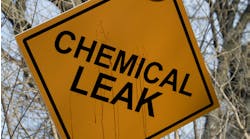Refinery Drives Engagement In Process Safety
As a process operator, I have witnessed the success of a program at the bp Cherry Point refinery, Blaine, Wash., that enhances the site’s process safety culture. It specifically addresses workforce issues mentioned in key process safety references. “Guidelines for Risk Based Process Safety” [1] cites workforce involvement as one of twenty essential elements to reduce process safety risks and prevent major incidents. In addition, two of the ten process-safety-culture core principles named in “Essential Practices for Creating, Strengthening, and Sustaining Process Safety Culture” [2] relate to employee participation: empowering individuals and deferring to their expertise as front-line workers. The model implemented at Cherry Point refinery serves both these process-safety-culture core principles. It has enabled the site to establish employee engagement in the process safety program. After decades of practice and development, this process safety management (PSM) model has become a significant driver of the process safety culture at Cherry Point refinery.
The basic structure of the program is built upon three developmental roles staffed by process operators and maintenance technicians. The three roles are: operating area PSM specialists, operations process safety specialist, and reliability department PSM specialists. These are full-time positions that rotate among front-line workers.
Two important points deserve emphasis:
The roles are full-time. Workers, while acting in these roles do not carry on-shift operations or maintenance responsibilities, aside from training and maintaining their technical skills.
The roles are rotating. There are two reasons for having rotational assignments. First, it allows more workers an opportunity to gain the valuable experience afforded by these roles. Second, it ensures that current front-line workers staff the positions.
Although the duration of the assignments varies, generally assignments last two years, thus, keeping a fresh perspective in the position.
Companies execute employee participation in a variety of different ways. Often operators or maintenance technicians remain on shift, fulfilling their normal duties, while also attending a management-of-change (MOC) reviews or a process hazard analysis as a peripheral duty. At Cherry Point refinery, on-shift workers may be encouraged, or even required to participate in addition to their day-to-day tasks; however, the positions detailed here are dedicated positions.
Now let’s look a bit more at each of the positions.
Operating Area PSM Specialists
These are operators who are given an off-shift assignment to support PSM compliance for their operating area. The responsibilities of an operating area PSM specialist include (but are not limited to):
• operating procedure writing and review;
• operating manual review and updating;
• alarm management;
• MOC;
• pre-startup safety review;
• operator training;
• hazard-and-operability and layers-of-protection analyses; and
• mitigation plans.
One task to highlight here is updating operating procedures and manuals. The operating area PSM specialists are solely responsible for writing and updating these documents. They confer with engineers, supervisors and other operators, but have ownership of their area’s procedures and manuals. It is possible, even with a robust PSM program, that sites may have operating procedures that are outdated, incorrect or unclear. Driving engagement within operations can prevent these issues by having procedures and manuals written by operators with their fellow operators in mind. If a procedure or manual is inaccurate or unclear, an operator can raise that concern directly to the area’s PSM specialist, a fellow operator, who has full authority to address it.
Operations Process Safety Specialist
This position is held by an operator who joins the refinery’s process safety team full-time, is embedded with the process safety engineers, and provides insight and guidance on the details of front-line refinery operation. A good summary of the concept for this position appears in Ref. 1: “These workers are potentially the most knowledgeable people with respect to the day-to-day details of operating the process and maintaining the equipment and facilities and may be the sole source for some types of knowledge gained through their unique experiences. Workforce involvement provides management a mechanism for tapping into this valuable expertise.” This position allows the refinery to integrate this unique experience into the process safety team. The responsibilities of the operations process safety specialist include (but are not limited to):
• providing insight and guidance to process safety engineers;
• liaising between the operations and process safety teams;
• reviewing and updating site-wide policies and procedure;
• studying and implementing learnings from industry incidents;
• self-verification;
• championing process safety awareness site-wide; and
• implementing standardized PSM practices throughout the entire site.
One example of the work accomplished in this role was an update to the site’s demolition and line-cutting procedure. After one turnaround event, it was recognized that an update was necessary. The operations process safety specialist conducted a review of line-cutting incidents throughout industry and identified practices that could prevent the most common errors. After seeking input about best practices from stakeholders including operations, maintenance, supervisors and contractors, the person incorporated these improved practices into the revised procedure. Additionally, the operations process safety specialist developed and delivered training to the site to communicate the changes.
Reliability Department PSM Specialists
Just as mechanical integrity is essential to the site’s PSM program, so, too, is the existence of the reliability department PSM specialists. These specialists are front-line maintenance technicians representing the instrument and electrical shop (I&E technicians), the machine shop (machinists or millwrights), and the general shop (pipefitters, welders and boilermakers). Each maintenance shop has its own PSM specialist. The responsibilities of the reliability department PSM specialists include (but are not limited to):
• managing critical equipment lifecycle;
• training technicians;
• developing and reviewing maintenance procedures;
• MOC;
• hazard analysis;
• root-cause analysis; and
• self-verification.
When the refinery revised its critical equipment lifecycle management program, the reliability department PSM specialists played a vital role. They developed equipment registers, with insight from the process safety team and operations, and updated the preventative maintenance procedures for the equipment. They also developed and provided training to technicians, underscoring the importance of detailed maintenance-event logs.
The Benefits
Now that we have looked at the positions and what they do, let’s turn to how the design of Cherry Point refinery’s process safety program drives employee engagement. Many studies indicate employee engagement rests upon a few core qualities: ownership; professional and personal growth; and recognition.
Ownership. Operators and maintenance technicians are responsible for delivery of PSM elements, which drives a level of ownership in the program. This ownership, in my opinion, has the largest impact on front-line workers’ process safety culture. As well-known author and leadership consultant Jocko Willink succinctly put it [3]: “Ownership is the most powerful compensation you can give a human being.”
Professional and Personal Growth. Process safety work provides experience that supports development outside the traditional work scope of operators and maintenance technicians. They also can make a difference and see the value they are adding for their fellow front-line workers. Furthermore, as individuals rotate in and out of these positions, the refinery becomes increasingly staffed with process operators and maintenance technicians who are knowledgeable about the refinery’s PSM program.
Recognition. Because work accomplished within the PSM program is being driven by the front-line workers, there is an opportunity to recognize them, and their departments, for the contributions they have made to process safety. Such recognition increases their sense of accomplishment.
Next, we should list some core competencies. As Ref. 2 cautions: “While empowering others to fulfill their process safety responsibilities is desired, an employee cannot be empowered if they are not competent to carry out their role.” Key competencies include (but are not limited to):
• process operator or maintenance technician expertise;
• written and verbal communication skills;
• familiarity with PSM elements;
• critical thinking skills;
• collaborative approach to resolving complex challenges;
• basic computer skills; and
• awareness of different learning styles.
Consideration of these capabilities is an important part of candidate selection.
The U.S. Chemical Safety Board (CSB), in “Safety Digest — The Importance of Worker Participation” [4], highlighted worker engagement as critical to process safety, and discussed how ineffective employee participation was found to be a contributing factor in four process safety incidents. Then-CSB-board-member Rick Engler in a press release about the publication said something that summarizes my personal belief in Cherry Point’s process safety program: “Worker engagement is key to an effective process safety program. After all, it’s employees who are so often in direct contact with the hazards — and have the experience and knowledge to help prevent them.” Several existing process safety regulations already require worker participation. However, I believe basic participation may not be enough. Achieving operational excellence and a strong process safety culture requires front-line workers who are engaged in and take ownership of the PSM program.
TONY BOCEK is a senior operations technician at the bp Cherry Point refinery, Blaine, Wash. Email him at [email protected].
REFERENCES
1. “Guidelines for Risk Based Process Safety,” Center for Chemical Process Safety/John Wiley & Sons, Hoboken, N.J. (2007).
2. “Essential Practices for Creating, Strengthening, and Sustaining Process Safety Culture,” Center for Chemical Process Safety/John Wiley & Sons, Hoboken, N.J. (2018).
3. Willink, J., and Berke, D. (hosts), “The Debrief with Jocko and Dave Berke: We All Have To Know WHY We Are Doing What We Are Doing,” audio podcast episode no.16, Jocko DEFCOR Network (Apr. 12, 2021).
4. “Safety Digest — The Importance of Worker Participation,” U.S. Chemical Safety & Hazard Investigation Board, Washington, D.C. (2018).


